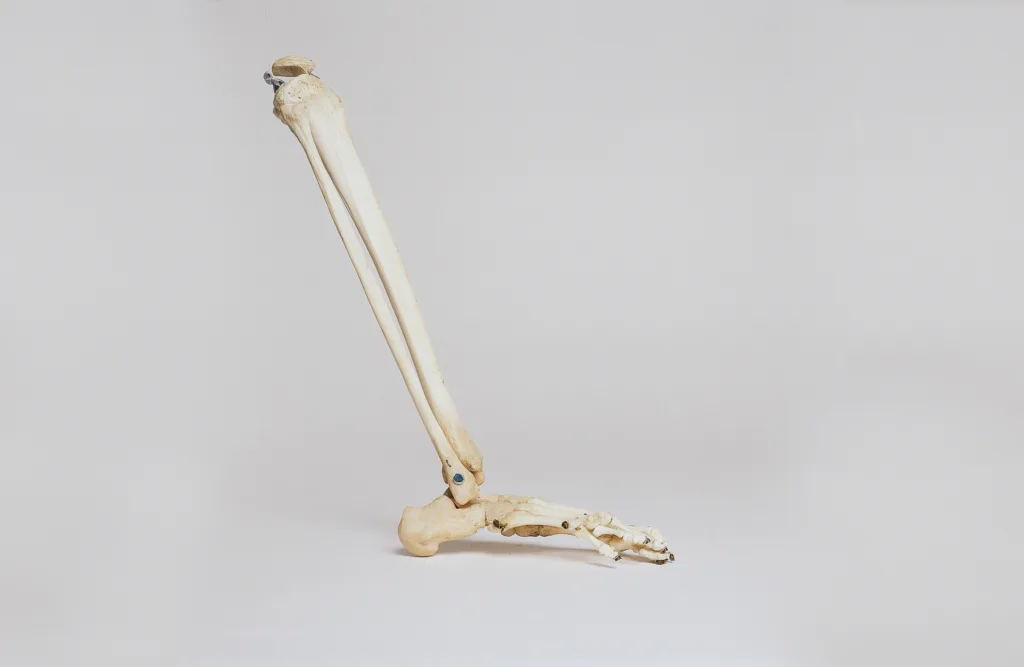Osteo is a medical term that refers to the bones in the human body. It is derived from the Greek word “osteon” whih also means bone. The prefix osteo- is often used in medical terms to indicate something related to bones or bone tissue.
The study of bones is known as osteology. Osteology is a crucial aspect of human anatomy and physiology as bones are responsible for providing support to the body and protecting vital organs such as the heart, lungs, and brain. Bones are also essential in the formation of blood cells and the storage of minerals such as calcium and phosphorus.
Osteoporosis is a medical condition that affects bones, particularly in older adults. In osteoporosis, bones become weak and brittle, making them more susceptible to fractures and breaks. This condition is caused by a lack of calcium and other essential minerals in the bones, leading to a loss of bone density. Osteoporosis can be prevented and managed through a healthy diet rich in calcium and vitamin D, regular exercise, and medication.
Osteoarthritis is another medical condition that affects the bones and joints. This condition is caused by the wear and tear of the cartilage that cushions the joints, leading to pain, stiffness, and inflammation. Osteoarthritis can be managed through physical therapy, pain medication, and lifestyle modifications such as weight loss and regular exercise.
Osteopathy is a form of alternative medicine that focuses on the musculoskeletal system and its impact on overall health and well-being. Osteopaths use manual techniques such as massage, stretching, and manipulation to treat a variety of conditions, including back pain, headaches, and joint problems.
The term osteo is an important medical term that refers to bones and bone-related conditions. Understanding the role of bones in the human body, as well as common conditions such as osteoporosis and osteoarthritis, can help individuals maintain healthy bones and overall wellness. Additionally, alternative therapies such as osteopathy can provide additional options for managing bone-related conditions.
What Is The Word Root For Bone?
The word root for bone is “osteo-“. This combining form is derived from the Greek word “osteon”, which means bone. It is commonly used in medical terminology to denote anything related to bone. By using this prefix, medical professionals can easily identify terms related to bone and understand their meaning. It is worth noting that the use of “osteo-” as a prefix is not limited to the medical field alone, but can also be found in other areas of study such as anatomy, physiology, and biology.

What Does The Suffix Osteo Mean?
The suffix osteo is derived from the Greek word “osteon” which means bone. It is a combining form that is widely used in the medical field to denote various terms and conditions related to bones. The term osteo is typically added to the beginning of a word to indicate its connection with bones. For example, osteoporosis refers to a medical condition in which bones become weak and brittle, while osteotomy refers to a surgical procedure that involves cutting or reshaping bones. the suffix osteo is used in medical terminology to indicate a relationship with bones.
What Does Osteo Mean In Latin?
In Latin, “osteo” or “osteum” (in the form of a noun suffix) refers to bone or bony. This root is commonly found in medical terms related to the skeletal system, such as osteoporosis (a condition characterized by weak and brittle bones) and osteopathy (a system of healthcare that focuses on the musculoskeletal system). The term is derived from the Greek word “osteon,” which also means bone.
Conclusion
The medical term “oste” or “osteo” is derived from the Greek word “osteon” which means bone. This prefix is commonly used in medical terminology to describe conditions or procedures related to bones, such as osteoporosis, osteogenesis, osteotomy, and osteopathy. Understanding the meaning of this prefix can be helpful in deciphering medical terms and communicating effectively with healthcare professionals. As with any medical terminology, it is important to consult with a healthcare provider for accurate diagnosis and treatment.
